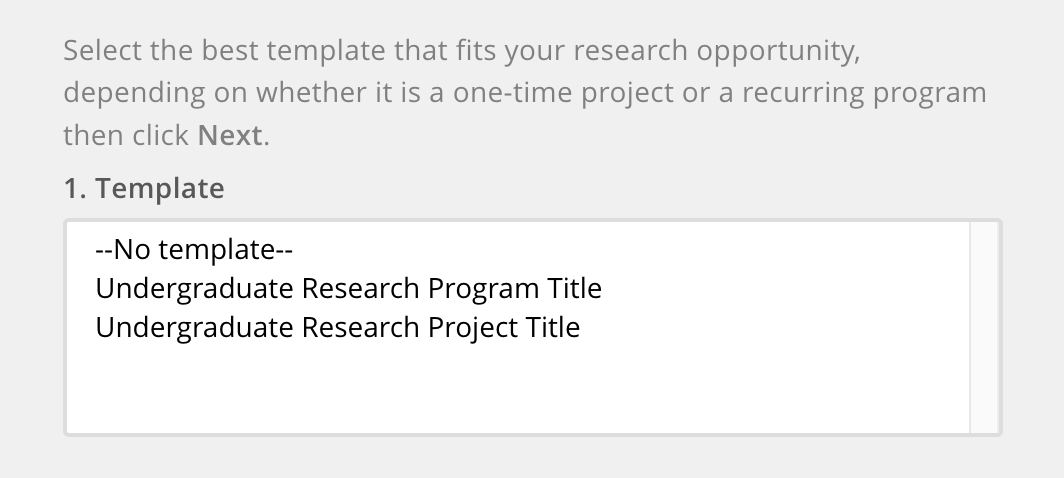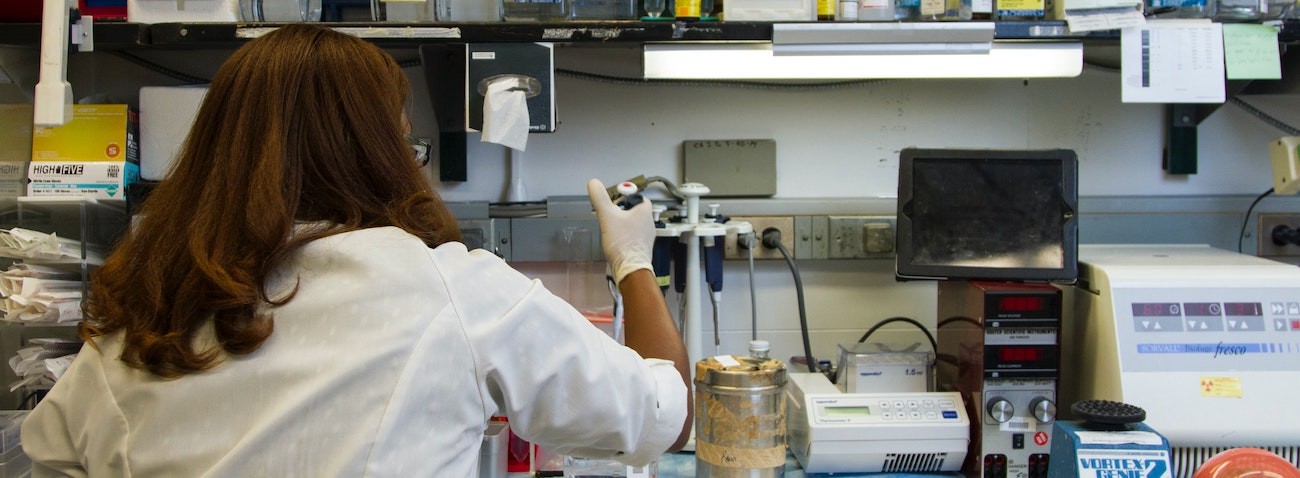"Experience the joy of doing research"
Research is pushing the frontier between what we know and what we don’t know. Through coursework, we learn what we know. Through research, we explore the unknown, discover new knowledge, and invent new theories and artifacts. I want our undergraduates to experience the joy of doing research. There is nothing more exhilarating than discovering something previously unknown or inventing something no one else has ever created. Research is an integral part of the educational process.
Through this web portal, the EVPR’s Office is providing a place where Columbia undergraduates can find research opportunities and mentors from across the entire university and Columbia faculty can post projects seeking undergraduate researchers. We hope our undergraduates and faculty take advantage of this portal to find each other to engage in cutting-edge research together.

Getting Started & FAQ
Students
One might broadly understand research as the study of a particular topic of interest and its subject matter, materials, and sources to establish facts, come to new conclusions, or otherwise contribute to an area of study. Learning how to conduct research is a necessary step for those who intend to go on to graduate study. That said, research is deeply rewarding in and of itself.
As an undergraduate researcher, you’ll hone transferable skills such as critical thinking, problem defining and solving, written and oral communication skills, and time management; make valuable connections with other undergraduate researchers, graduate students, post-docs, and members of Columbia’s world-renowned faculty; have the chance to delve into a topic that may not be covered in-depth in your major’s course offerings; and learn how to apply knowledge in your discipline in a specific context or even to another discipline.
A common misconception among undergraduates is that research requires advanced knowledge beyond the scope of an undergraduate major, but this is untrue. In fact, it is never too early to start.
This platform serves as a hub for undergraduates to search for research opportunities of all kinds and in all fields of study, from the life and physical sciences through mathematics and engineering to the social sciences and the humanities.
For undergraduates seeking additional advising regarding undergraduate research opportunities, please e-mail [email protected].
Log in and begin searching! This search platform combines the projects and programs that are offered to undergraduates on various school and department websites across Columbia, and puts them all in one place. You can do a keyword search or use a variety of filters to identify the opportunities that are best for you, from location to subject area of interest; you can also favorite opportunities to apply to later, or set up alerts so you are emailed when new opportunities are posted.
Absolutely! Many research opportunities do not necessarily require prior experience.
The application process is determined by the lab or department that posts the role, so read through each individual listing to identify their timeline requirements.
After you open an opportunity listing, you'll see an option to set up alerts on the right hand side of the page. Enter your preferred department, eligibility year (Freshman, Sophomore, Junior, Senior), opportunity term (Spring/Fall/Summer), or discipline (e.g. Engineering, Social Sciences, Business) and you'll be emailed each time a relevant listing is posted! Be sure to create a unique alert for every combination of terms that you'd like to be notified about.
If you want to stop receiving an alert, navigate to My Profile in the menu bar to update your alert preferences.
Yes. All students participating in research are required to complete applicable safety training. At a minimum, “Laboratory Safety, Chemical Hygiene and Hazardous Waste Management Training” is required for all laboratory personnel. Please verify with your Principal Investigator/Mentor/Sponsor any other necessary training requirements based on your research activities, referencing this safety requirements guide.
Emergency Response
Before beginning any laboratory research activities, please consult with your Principal Investigator/Mentor/Sponsor to ensure that you understand how to obtain medical treatment in the event of an emergency. You may also reference the emergency procedures table, but it's important to discuss your unique lab protocols with your PI.
Unless the offer came from someone whom you trust and can verify the offer with, the research offer is very likely a scam. For more information, see https://www.it.cuimc.columbia.edu/information-security/dont-get-hooked and https://www.cuit.columbia.edu/report-phishing.
Please visit Columbia’s Center for Career Education for more information on this topic: https://www.careereducation.columbia.edu/topics/resumes-cvs
Check out Columbia’s Center for Career Education’s advice on creating an undergraduate CV, what to put in or to leave out for your resume, and the engineering resume. You might also be interested in these sample resumes.
Many of Columbia’s faculty members are happy to take on undergraduate researchers. Faculty members often describe their research interests and initiatives online, so departmental websites are a good place to start. If you’ve identified a faculty member whose interests align with yours, you could attend their classes, read their research publications, attend their symposia and lectures, and frequent their office hours to engage with them and to find out if you’d be a good fit. For how to make the first step in contacting potential faculty mentors, see https://urf.columbia.edu/urf/research/help/mentors and https://ugr.ue.ucsc.edu/email.
The Columbia Libraries offer a variety of resources to support undergraduate research. Please visit: https://library.columbia.edu/services.html#audience=student.
While this platform is intended for undergraduate use, many research fellowships for Masters students are posted on Columbia's URF site and SEAS' research opportunities page.
Faculty & Researchers
To post an opportunity, navigate to Columbia's TalentLink posting portal and log in with your UNI and UNI password. This link will send you directly to the page where you should select the template that is appropriate for opportunity (one-time project or recurring program).
If you get a 401 error saying "You don't have access to this part of the system" after clicking Next, email [email protected] to request access.

When you're finished entering your opportunity details, click Save to submit your opportunity for approval. You will be able to see it on the Undergraduate Research Opportunities site within the next business day.
For step-by-step instructions, download our PDF on how to post an undergraduate research opportunity.
The Undergraduate Research Opportunities website was specifically designed to aggregate research opportunities for Columbia undergraduates, led by Columbia faculty and researchers. We welcome projects and programs hosted on Morningside Campus, CUIMC, Barnard, or Teachers College. If your opportunity is open to masters or post-doctoral students, that is acceptable, but undergraduates must also be welcome to apply.
Please note, it is the responsibility of the host Principal Investigator/ Mentor/ Sponsor to ensure that all students participating in research have completed necessary training. At a minimum, “Laboratory Safety, Chemical Hygiene and Hazardous Waste Management Training” is required for all personnel working in a laboratory. Please use the Safety Requirements table to verify the necessary trainings based on the type of research that the student(s) will conduct.
Yes. However, they should ensure that you have undergone the proper training to manage an undergraduate student.
If your DA cannot reach the Select a job template page on TalentLink, they should email [email protected] to be added.
Email [email protected] for questions or further help with searching for or posting opportunities.
For undergraduates seeking additional advising regarding undergraduate research opportunities, please e-mail [email protected].

